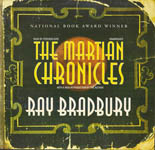

 Hunt: Through The Cradle Of Fear (#2 in the Adventures Of Gabriel Hunt series)
Hunt: Through The Cradle Of Fear (#2 in the Adventures Of Gabriel Hunt series)
By Gabriel Hunt (aka Charles Ardai); Read by Jim VanDusen
6 CDs – Approx. 8 Hours [UNABRIDGED]
Publisher: Audio Realms
Published: November 2009
ISBN: 9781897304761
Themes: / Adventure / History / Mythology / Fantasy / Hungary / New York / Egypt / Greece / Sri Lanka / Libya / Noir /
From the towers of Manhattan to the jungles of South America, from the sands of the Sahara to the frozen crags of Antarctica, one man finds adventure everywhere he goes: GABRIEL HUNT. Backed by the resources of the $100 million Hunt Foundation and armed with his trusty Colt revolver, Gabriel Hunt has always been ready for anything – but is he prepared to enter… The Cradle Of Fear? When a secret chamber is discovered inside the Great Sphinx of Egypt, the mystery of its contents will lead Gabriel to a remote Greek Island, to a stone fortress in Sri Lanka … and to a deadly confrontation that could decide the fate of the world!
Hunt Through The Cradle Of Fear is a fast paced, well researched, modern adventure tale in the vein of Indiana Jones or Jake Sampson: Monster Hunter. The adventure never flags or gets bogged down in the equipment porn many of the other adventure series I’ve read have. Instead, the story both figuratively and literally jets from scene to scene – with a narration that almost as velocitous. Adding to the fun is Sheba, a distressed damsel who is no mere mcguffin – she’s got skills that both Lajos DeGroe, the billionaire heavy, and Hunt both need. When Gabriel Hunt, the titular hero/author, isn’t stowed away on a private jet, chasing after Sheba to who-knows-where, he’s doing battle from the seat of New York taxi or jumping off ramparts into shadowy abysses. Spanning three-quarters of the circumference of the Earth, this story threads together a plot explaining the various archaeological connections between Greece, Egypt and Sri Lanka. I thoroughly enjoyed every moment of it.
In Chapter 19 there’s a delightful little scene that shows just how playful this book is. Gabriel Hunt, and his buxom companion, are set to meet a shadowy hacker in an Istanbul landmark when they bump into a pair of married writers – one is named Naomi, and she write historical fantasy, the other, her husband, writes adventure stories. If your a bit familiar with Charles Ardai, who wrote Hunt Through The Cradle Of Fear you’ll instantly recognize, as I did, that that was a cameo by both Charles Ardai and his wife Naomi Novik (author of His Majesty’s Dragon |READ OUR REVIEW|! Fun heh? Also promising is the serial but standalone nature of this book. Each book in the series stands alone, but offers callbacks to the earlier adventures as well as advancing the plot and/or revealing more about the Hunt family fortune. This is book 2 in a series, all attributed to Gabriel Hunt, but all ghost-written by various authors. One brief scene referring to events in book 1 Hunt At The Well Of Eternity, for example, made me want to pick up the first book in the series.
If you’re looking for painterly descriptive passages, or angsty characters, you’d do well to avoid this romp. Gabriel Hunt is an adventurer first and foremost. But, if you, like me, enjoy a little back-story – slowly revealed – between hard-fought gun battles and perilous plunges from high places – you’re in for a real treat. When I talked to Fred Godsmark, of Audio Realms, in SFFaudio Podcast #078 I asked him why he produced book 2 in the Gabriel Hunt series, rather than book one. He told me that its was what he was suggested he start with. If Hunt At The Well Of Eternity is half as good as Hunt Through The Cradle Of Fear it’ll definitely be worth picking up too!
Narrator Jim VanDusen is an absolute keeper. His voice perfectly suits the care-free Hunt. But he’s also able to voice the black-hearted villains, the variously accented henchmen, as well as the brainy but busty beauty Sheba (the female lead). It’s always a delightful surprise to find a new narrator, Jim VanDusen is one of these.
But that’s not all! Tacked on to the end of this novel is a bonus 83 minute novelette by Charles Ardai, also read by Jim VanDusen, called Nor Idolatry Blind the Eye (the etext for which is |HERE|). Nor Idolatry Blind the Eye is a terrific adventure tale set in post WWII Libya and starring a shattered mercenary named Malcolm Stewart who is looking for a reason to live. It reminded me of a cross between one of Robert E. Howard’s ghost stories and the 1943 movie Five Graves To Cairo. Like Hunt Through The Cradle Of Fear it is also well researched, fast paced and truly thrilling. Unlike Cradle it’s grim, a meaty noir tale, in the way that a series story never could be. Highly recommended!
Posted by Jesse Willis






